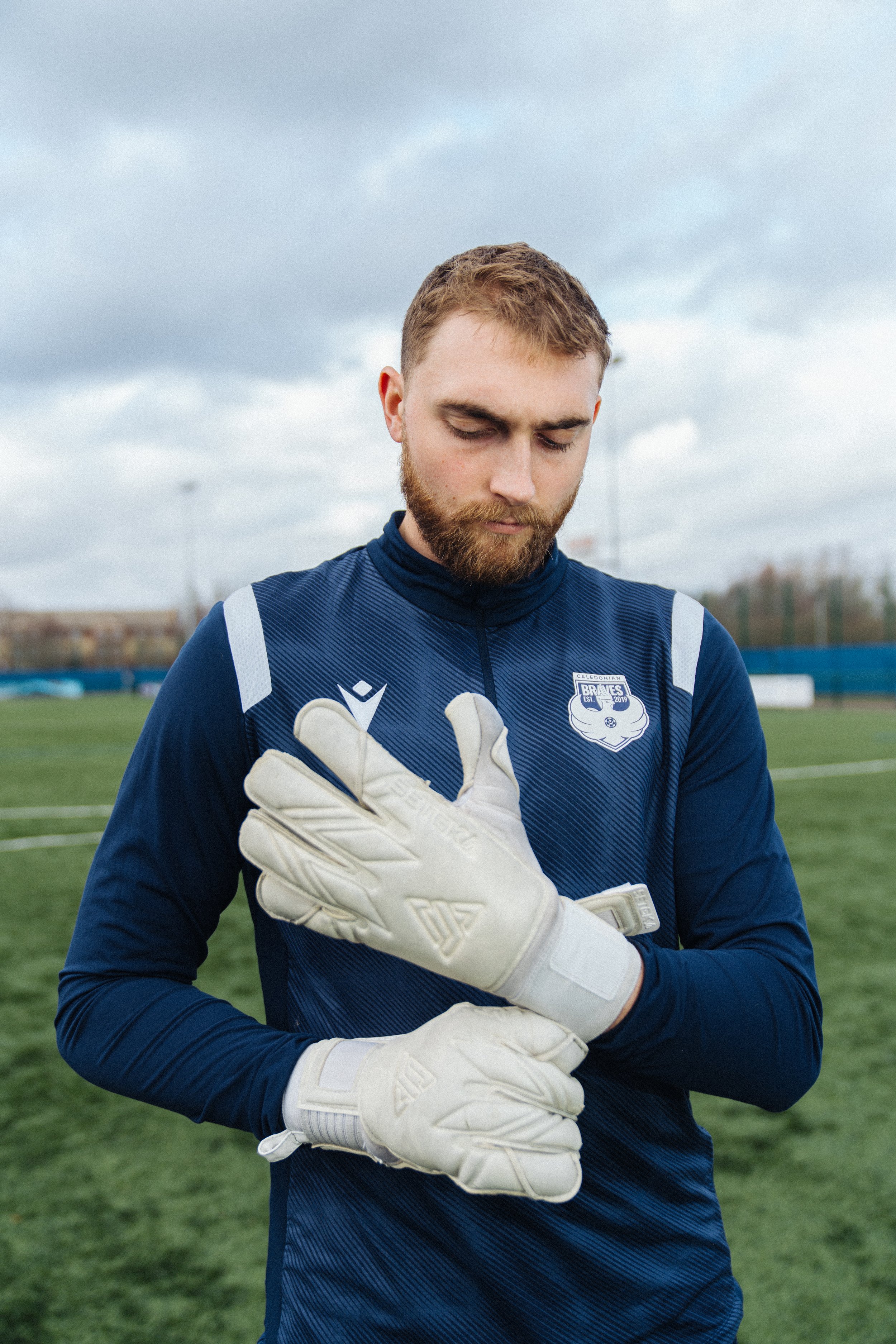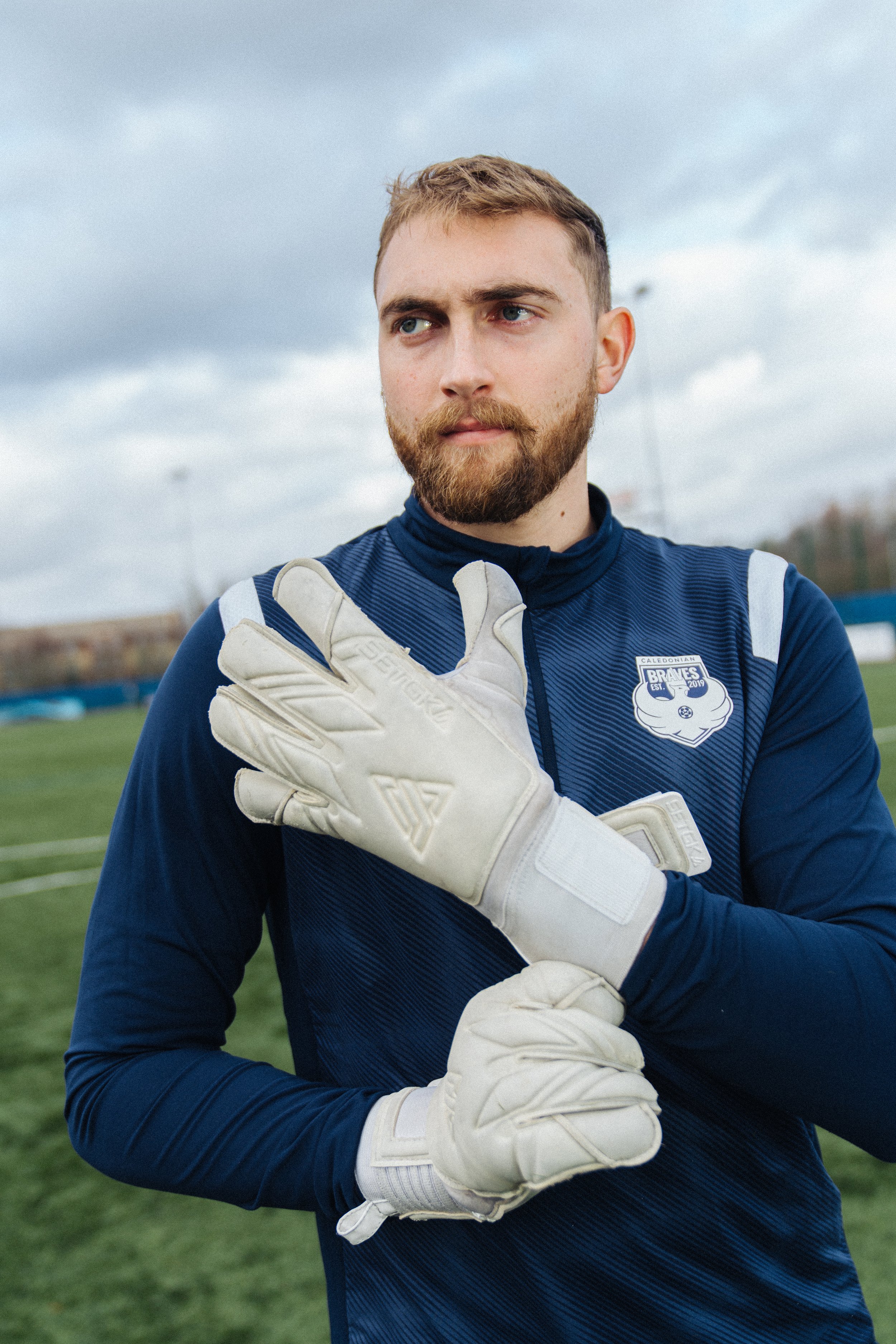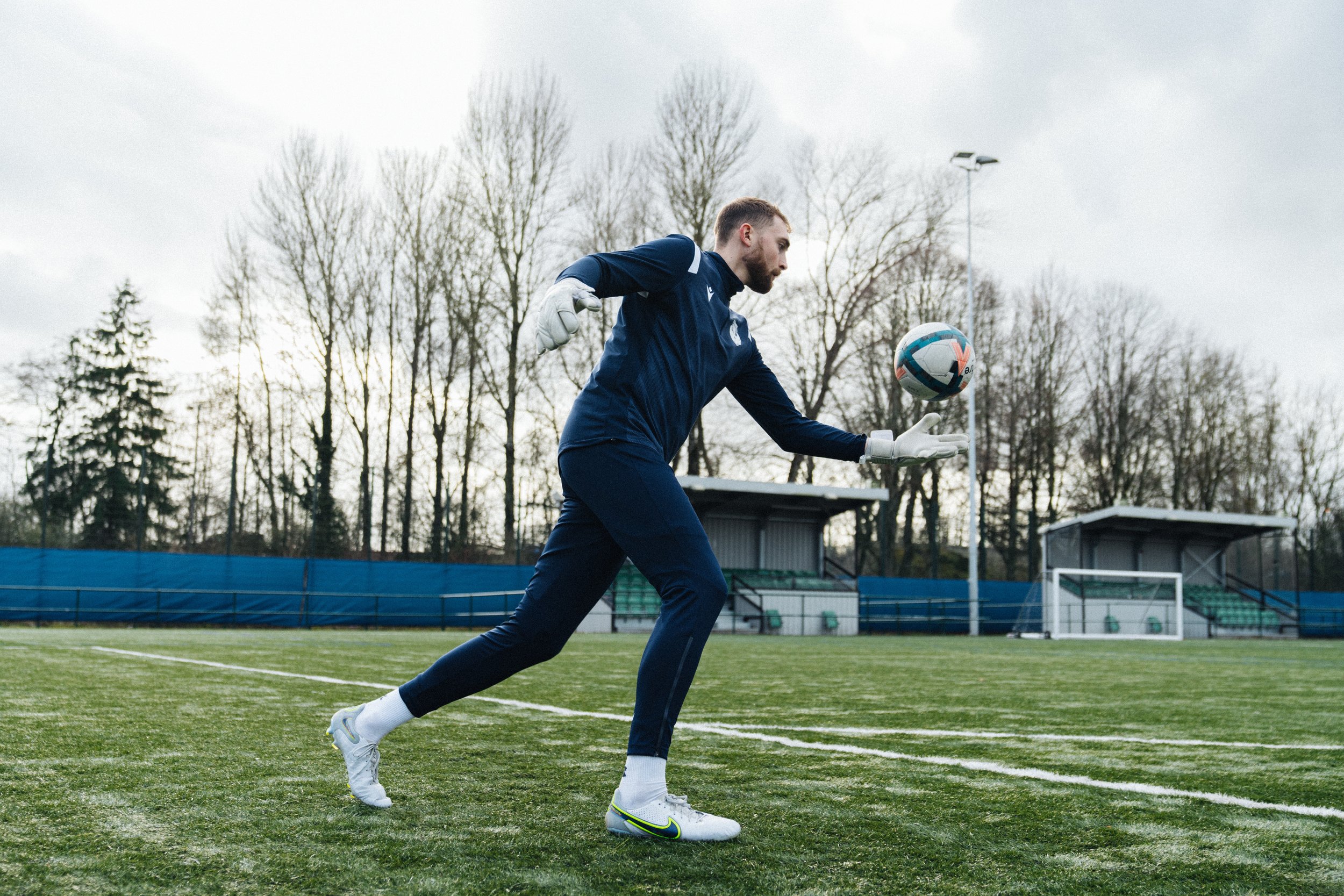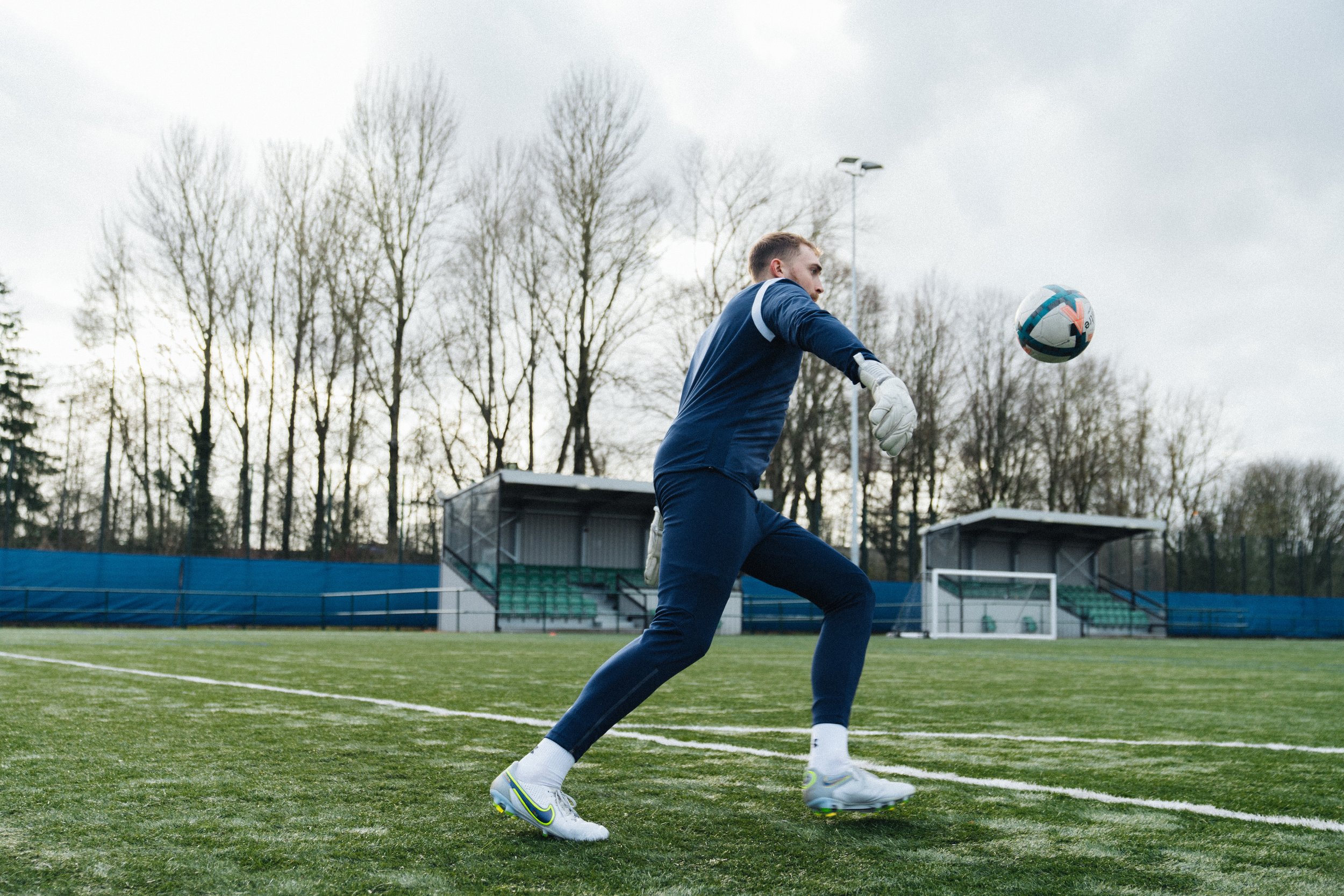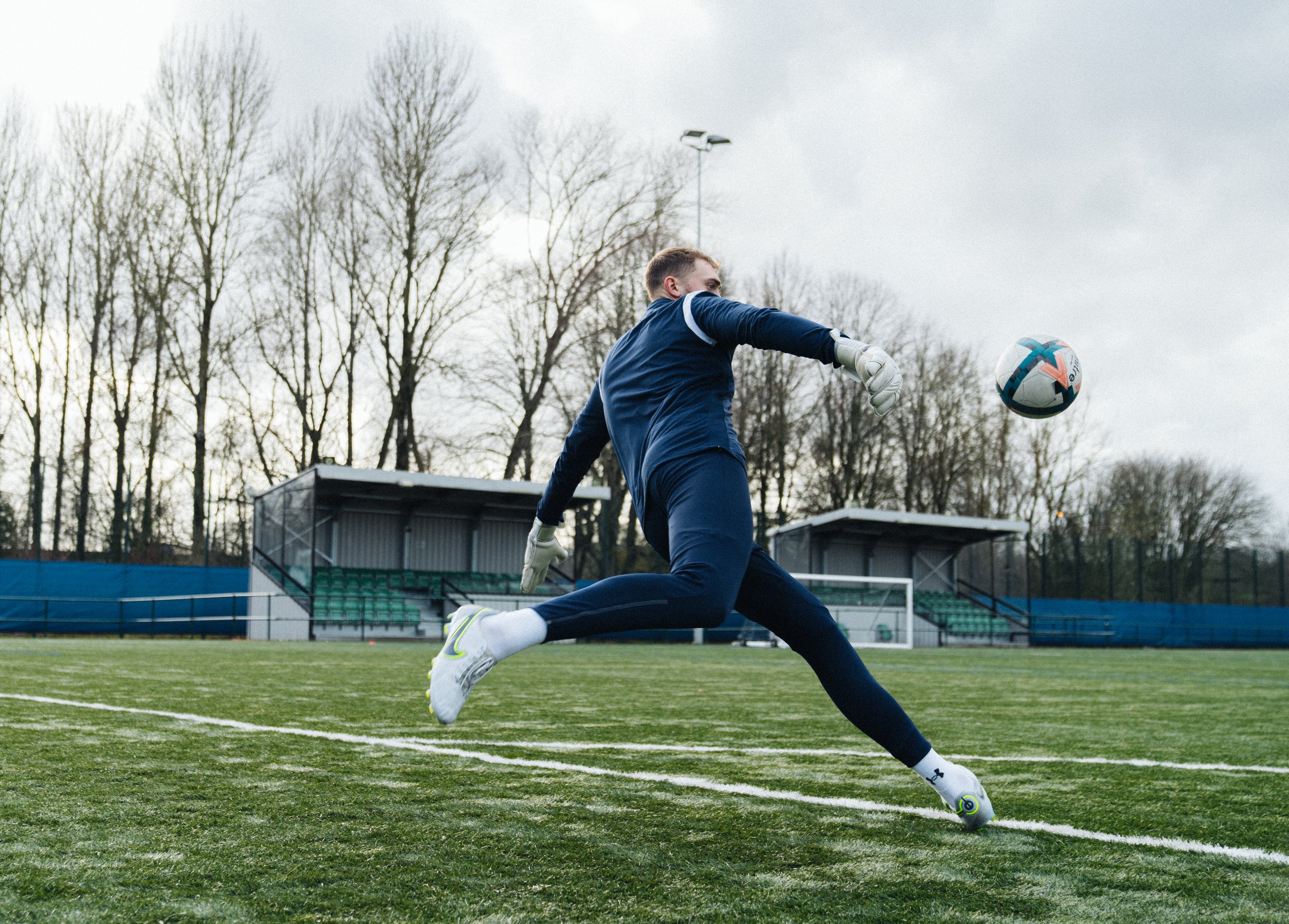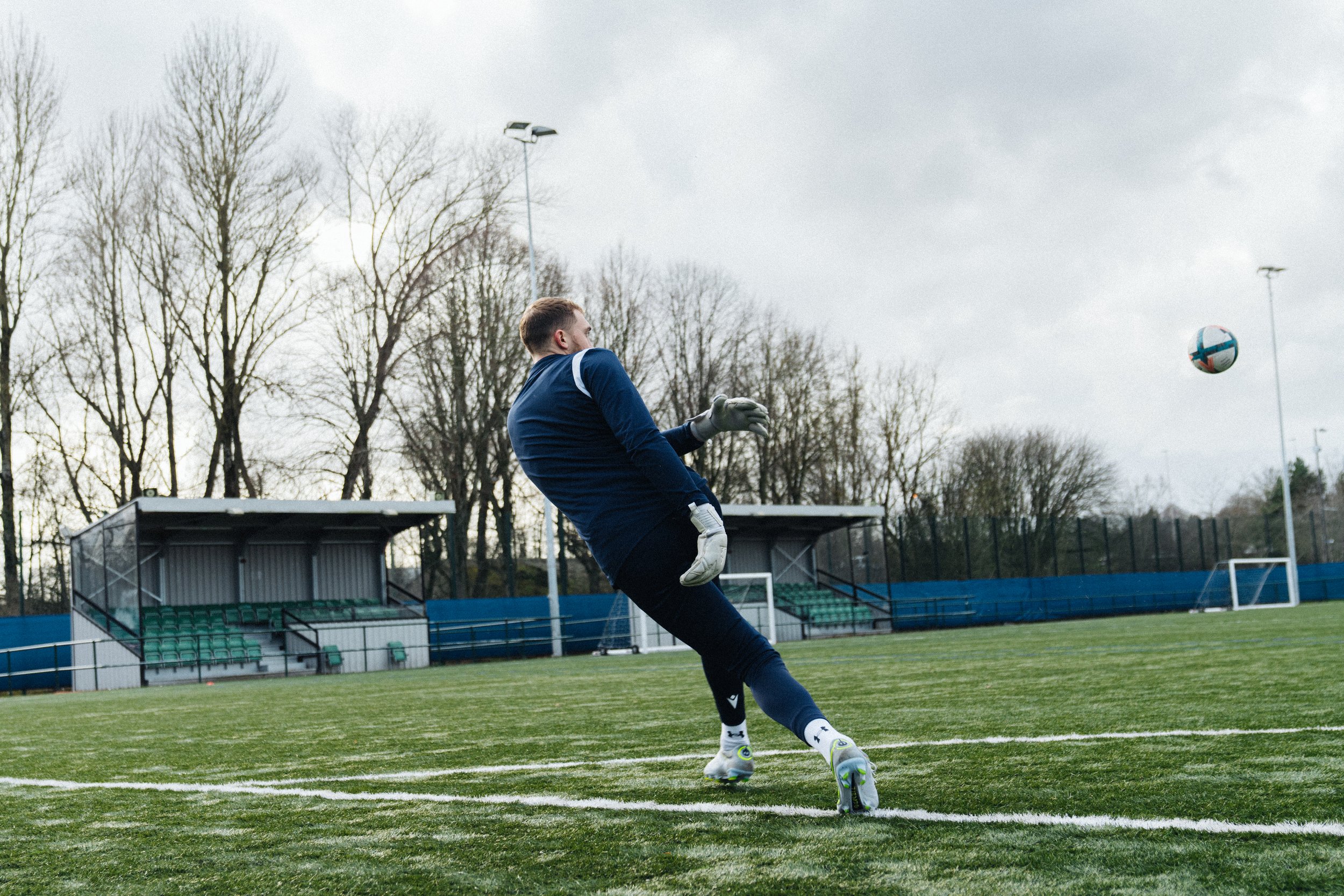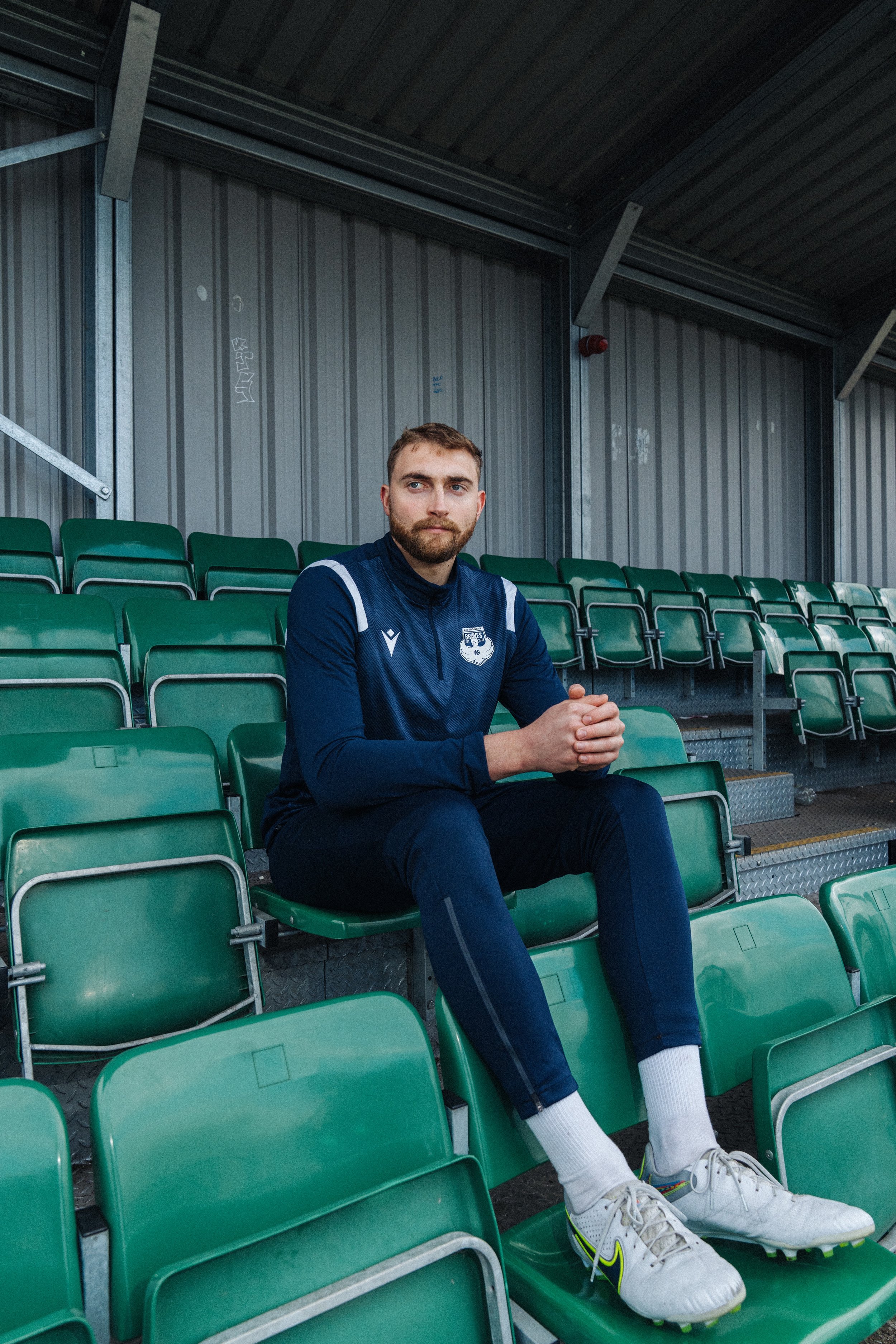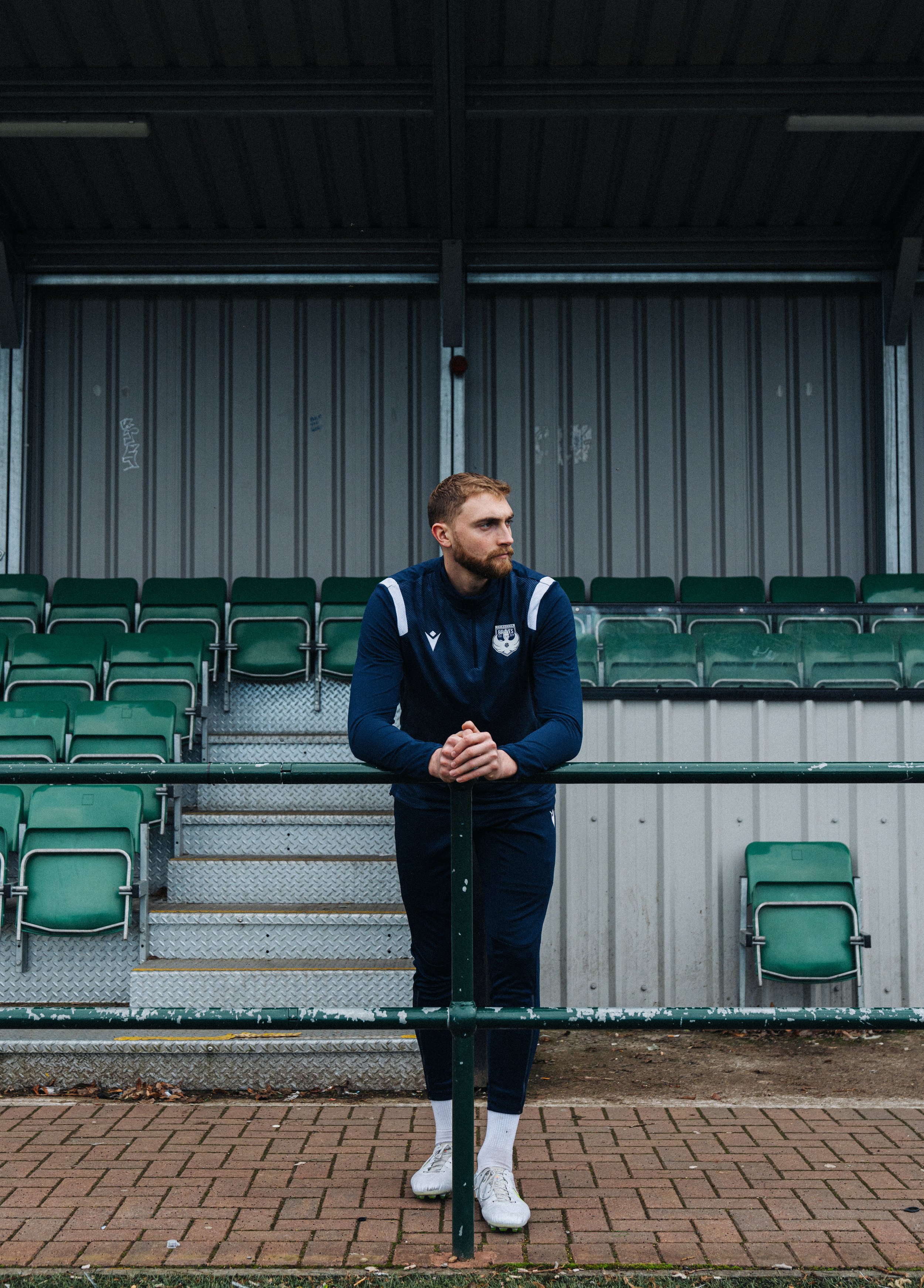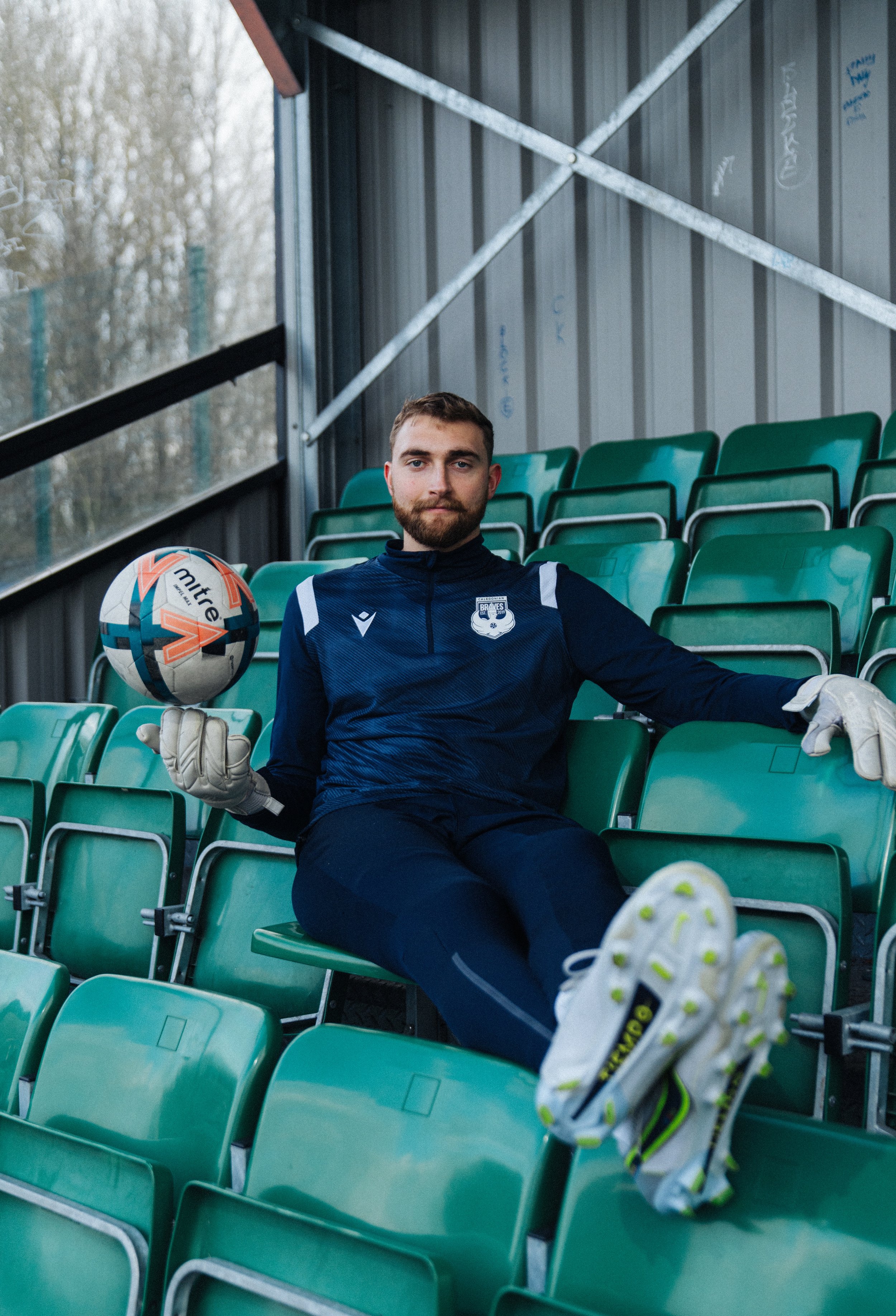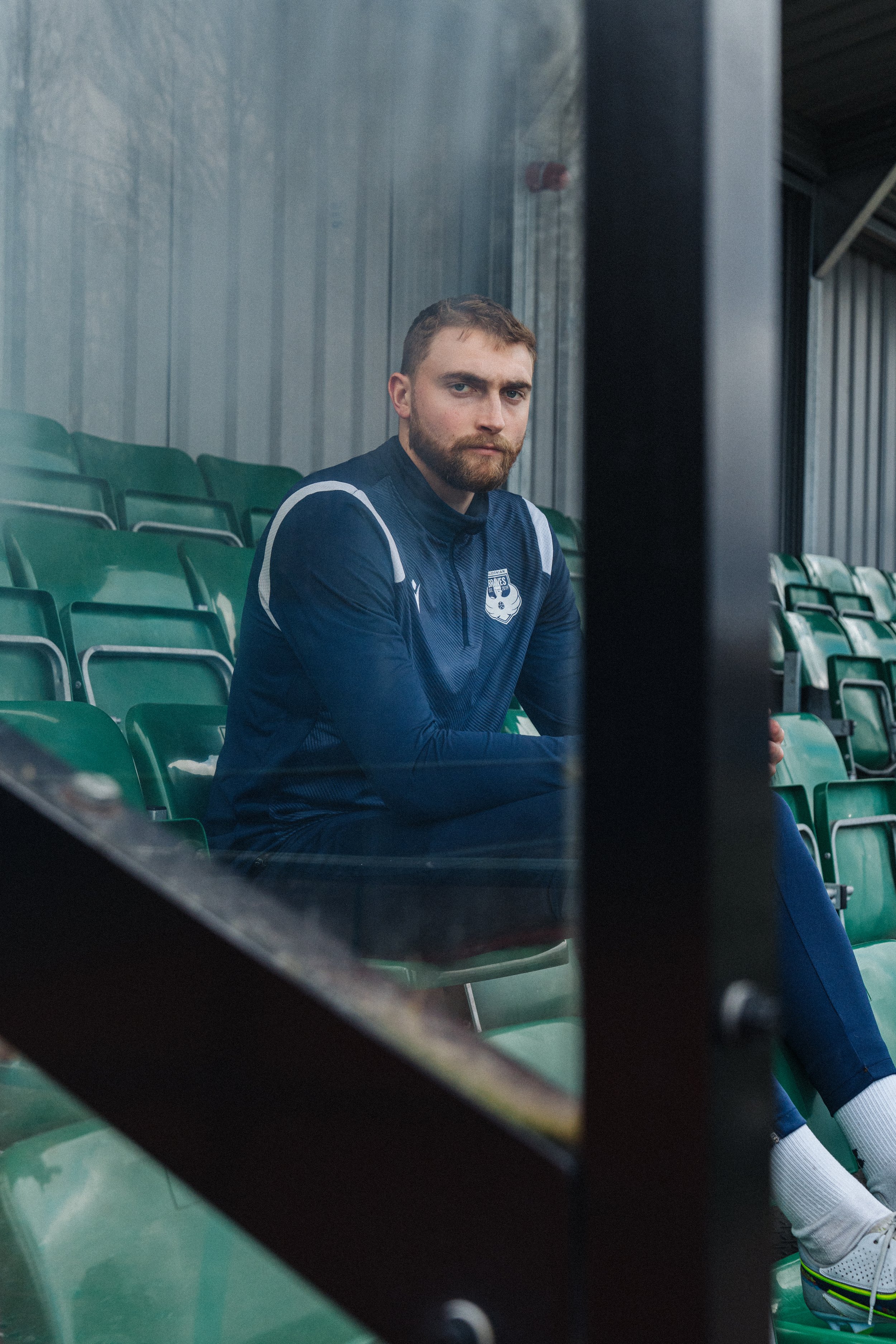Bernie White

The Caledonian Braves from the Scottish fifth tier are doing something that’s never been done before in soccer. Through innovative technology, they’ve taken the concept of fan ownership and brought it one step further. Fans from around the world can become part of the Braves community and directly influence the big decisions that come with running a club – from choosing the crest all the way to directing how the club votes on crucial league ballots. With over 800 fans from 30 different countries taking part in this initiative, the Braves are at the forefront of what could become the future of our sport.
As we sought to find out more about the Braves, we connected with their American goalkeeper Bernie White, who’s been part of the club since the start of this year. Bernie was born in the UK but grew up in the States, and we got to chat about his path to Scotland, soccer culture on both sides of the pond, and his perspective on being part of such an innovative project with the Braves.
Where did your journey with soccer begin?
I was born in Liverpool, so one of my earliest memories with the sport was the 2005 Champions League Final. We had a lot of family members over, and my parents let me stay up late to watch the second half, even though things weren’t looking great at the break. Seeing the city light up after that win and seeing the impact soccer can have on a community was a huge moment for me as a kid.
I’m sure as a young kid, that might’ve propelled you to think one day you’d like to play professionally.
Yeah, definitely. I remember going to some academy camps hosted by Liverpool on the weekends, and I remember loving it so much. One of those clinics was one specifically for goalkeepers, and that’s when I realized I loved diving around and playing between the sticks. It was all born out of those experiences.
You had the unique experience of growing up in both the UK and the US. What were some of those cultural differences that you saw when it came to the sport?
I always appreciated both places, but I always remember the big family atmosphere surrounding the game in the UK and going out to play with my friends after school. I have many enjoyable memories growing up there, but the transition to the US was great too. I first moved to Urbana in Illinois, so it was a whole different culture. It wasn’t easy at first, but luckily, I was able to find my community through soccer. Soccer wasn’t a big thing in the US, but there were a lot of international people who played the sport, and that helped me find my footing in the US.
When you were 12, you ended up moving to Austin. Is that when things began to turn more serious when it came to the sport? When did it click that you wanted to go pro?
When I got to Austin, I joined the Lone Star Developmental Academy, and that’s when I started to take goalkeeping seriously. That’s where I really developed as a player, but my mind never went as far as to think I could play pro. My goal was to get to the college level and use soccer as a vehicle to get the best education I could. I always had the thought that if I was good enough, and worked hard enough, I could play at the next level. But my main focus was using soccer as a way to set up my education. I think that’s pretty unique to the US – it’s changing somewhat now – but that was my big focus.
With your education being a main focus at the time, what did you decide to study and how did that connect to your soccer journey?
I went to Amherst College, which is a great liberal arts school. I ended up studying psychology and economics, and I knew I wanted to connect those to soccer. I always knew I wanted to be involved in the business side of soccer. If I couldn’t make it pro, I was always going to be involved with the sport somehow.
What was your experience at the college level like? How did it set you up for success, and what were some of those favorite memories you made?
It was tough competing for a spot, but I think those four years are great for your development. I had some great coaches that prepared me to eventually make that jump. All of that culminated in winning our conference championship my senior year. If there’s one standout memory, it’s that one because it capped my time in college in such a positive way. On top of that, though, I think the best part about college soccer is hanging out with your teammates off the field. It ties back to that community aspect of the game, which is always my favorite part of soccer.
You finished off your college career on such a high. How did the decision happen of trying to go pro? Did you think of taking another route?
I’d played in USL2 the summer before my senior year. I thought I had a good season, and I played against a lot of guys that ended up getting drafted into MLS. That put into my head that I could play at a higher level. Going into my senior year, I just thought I was going to give it my best shot to go pro after graduating. That came with sending highlight tapes, making connections, and just reaching out to a lot of people to see how I could get an opportunity.
How did the opportunity to play for the Braves in Glasgow come about?
I graduated in December, so it was kind of the perfect timing. During the holidays, I started reaching out to anyone I could. I spoke with a goalkeeper who played in my conference that’d gone on to play in Puerto Rico, Scandinavia, and one year in Scotland. I had my UK passport, and that kind of opened my eyes to the possibility of playing abroad. I ended up getting in touch with Chris, the owner of the Braves, and I sent him my highlight tape. He showed it to the coaches, and they liked it. Everything just went from there.
Making the jump to playing abroad can always be a tough decision. What was going through your mind, and how did you adjust?
Once the team let me know they could offer me housing, I had a conversation with my parents about the whole thing. I just thought, ‘Would I rather sit at home and try to find something else here, or do I take the chance and just go over there and give it a shot?’ I ended up deciding that I might as well go over. I had nothing to lose. It was intimidating, though, to leave my country, my friends, and my family. But in sports, you’ve just got to take the opportunities you’re given, and I was just excited to have a big goal to try to achieve over here.
In terms of adjusting, I expected the teams to be really physical – and they were – but they were also very technical. Off the field, the accent was the hardest thing to get used to, but everyone was super welcoming from the start. The guys have been great about having an American on the team. Being the only foreign player has been fun for sure – my teammates enjoy getting to know about American culture. It’s been a two-way street when it comes to that.
It’s good that it’s been that way. Sometimes it can be tough playing abroad because of the stigma that Americans carry in the soccer world.
I think it can be a bit different for goalkeepers. We’ve seen a lot of successful American goalkeepers come over to the UK and be successful, like Tim Howard, Friedel, Guzan, and others. Our performance at the World Cup was also recognized. Even though there is still some stigma, I feel like I haven’t experienced it here. No one thinks lesser of me. At the end of the day, you just gotta go out there and prove to them you’re good enough. Let your play do the talking. I think that’s the mentality that all Americans abroad are carrying out in recent years, no matter the level.
What has it been like experiencing the soccer culture over there?
In one of my first games, we played away in a cup game against a team from the eighth division. I was shocked by the amount of people that were there, and how tight the community felt. After the game, there were 200 people inside this little team pub. It was just players and fans having a good time, sharing a drink. I feel like all the smaller clubs are so ingrained in the community. You’ll always hear about Celtic and Rangers, but I’ve been more impressed with the level of commitment with lower clubs. The way they impact their communities, and the way they seem to be so intertwined with the towns is something I’ve never had the chance to experience before. We don’t really have those types of small community clubs in the US, although I do feel like we’re slowly starting to get there.
And it does feel like the Braves are taking that sense of community even one step further.
Yeah, when I initially looked at the club and spoke with the owner, he explained the format of the club and how unique it was. It was all about creating a community of fans who could be involved with running the club – and not just locally. It was all about bringing people from all over the world to have a say in how the club is run. That stuck out to me because I’ve seen that, historically, a lot of clubs have a formed ownership group that dictates what the club does, so the vision they had here resonated with me.
Having studied business and psychology, what is your take on that type of model?
I think it’s a fantastic model. If you look at the success that Wrexham is having right now, they’ve been able to amass a huge international audience. The beauty of the football pyramid over here is that you can see these clubs climb up the ladder, and that’s exciting for people. If you give fans all over the world the opportunity to be involved in that chase for promotion, you tap into something special. Being part of that is super exciting for any fan and also for us players.
It’s crazy that the club also has an app that lets fans take part in these big club decisions. Do you have it?
Yeah, I have the app, and so does my mom. She was so impressed by it. You can get live updates on the matches, so that’s one way she keeps up with how we’re doing. But on top of that, there are a few open community votes, which allow fans to have a say on how the club is run. I think it’s such a unique thing and something that hasn’t really been done before. The idea of fan majority ownership is something you see in the Bundesliga, for example, so that idea is not necessarily new, but the concept of integrating technology to have fans participate from around the world is something very unique. I think it’s a new model that we could start to see in many leagues across the world. It’s the perfect time to get involved now because you can have your say during the early stages of a club.
Having experienced the great culture around the club and seeing the innovative ways they’re pushing the sport forward, where do you see the club five or ten years down the road?
The beauty of the pro/rel system here means you can have lofty aspirations and goals moving up the ladder. From the first time I spoke with the owner and everyone involved, I knew they were ambitious people with hopes of seeing the club move up. It’s not going to be easy, but I hope to see the club get promoted in the near future. For me, being part of that now and participating in the early history of the club is humbling and exciting. At a personal level, I hope to keep progressing and see how far I can go. If that doesn’t pan out, though, I would love to get into the business side of soccer and stay in this space. I just want to be involved in the soccer community.
You’ve had quite the winding journey in the soccer space — from growing up in the UK to developing in the States and now playing over in Scotland. It’s all been to pursue this dream of playing pro. Looking back at all those things, why would you say you’re staying on this path, and what advice would you give others who want to take the same road as you?
Soccer has just been such a big part of my life since I was a little kid in Liverpool. It’s been such a constant throughout my life, and I think it’s taught me so many valuable lessons. Getting to play at the college level helped me get an education, and now it’s helped me move across the pond and experience new cultures. I want to use soccer as a chance to see the world and get to continue doing what I’ve always loved. For anyone who wants to take a similar path, my advice is to just trust in yourself and don’t let anyone else’s opinion dictate your goals. There are so many opportunities to make your dreams in soccer come true – you just need to believe in yourself and take those risks. The bigger the risk you take, the bigger the potential payout. I’m glad I’ve been able to do that, and I hope to continue doing it here in Glasgow and beyond.
Photography by: Andrew Stewart

